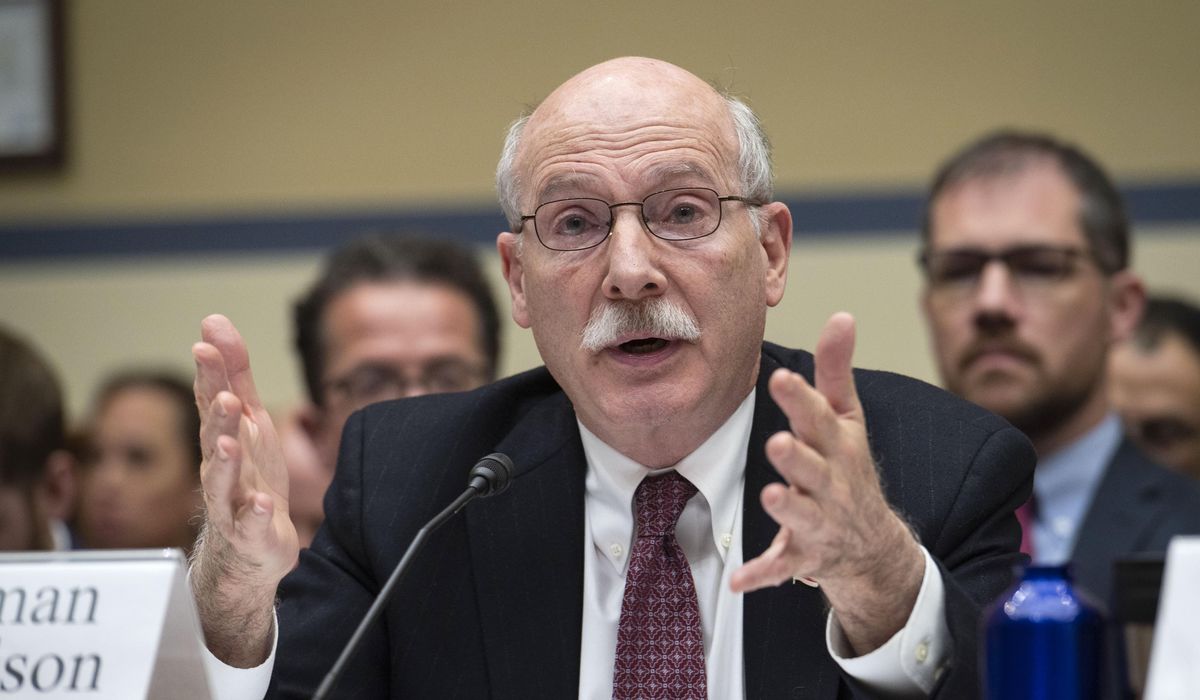


The D.C. Council voted Wednesday to roll back some pandemic eviction protections, directing local courts to collect overdue balances from deadbeat renters.
The amended RENTAL Act seeks a compromise between affordable housing advocates who support delaying legal cases indefinitely and landlords who say the emergency measures have cost them over $1 billion in unpaid rent since 2021.
By a 10-3 majority, the Democrat-controlled city legislature approved the act with a provision that will let courts “adjust” payment amounts as they collect back rent from nonpaying tenants in eviction cases.
“The eviction process is taking way, way too long, and we know that, and this bill is one of the ways we are trying to address that,” said Chairman Phil Mendelson, at-large Democrat.
Council member Robert White, an at-large Democrat who sponsored the final version of the bill, noted that new D.C. apartment construction permits plunged by over 80% from 7,234 in 2022 to 1,239 in 2024.
He said the city’s major housing lenders have redlined the District, opting not to build new units for the 70% of D.C. residents who are renters.
“Rent is too high, we don’t have enough affordable housing, our courts are clogged, we’re building housing too slowly, and we’re driving landlords and investors away, which raises the costs across the board,” said Mr. White, who chairs the Council’s Committee on Housing.
According to city estimates, 13 D.C. Superior Court judges are handling around 270 monthly eviction cases, and the eviction rate is estimated to rise from 16% to 22% by the end of the year.
Affordable housing advocates who opposed the RENTAL Act warned that the new law could strip tenants of their ability to resist eviction at a time when rents and living costs have risen faster than wages.
“It is said that most people are two checks away from struggling to pay their rent or their mortgage,” said Council member Trayon White, a Ward 8 Democrat who voted against the bill.
In a social media post Wednesday, Legal Aid DC described the RENTAL Act as potentially “the single largest rollback of tenants’ rights” in the city’s history.
“As residents are living in fear of being harassed and deported, the Council should be protecting low and no-income tenants, not making it easier to evict them,” the advocacy group said on X.
But Dean Hunter, CEO of the Small Multifamily Owners Association, which represents the city’s multifamily housing units, said the law’s omission of a requirement for delinquent tenants to attend a court hearing within 60 days of a landlord’s complaint makes it unlikely evictions will accelerate.
“Right now it’s taking months to get that initial hearing,” Mr. Hunter, a longtime small-landlord advocate, said in a text message. “We need the case to get to court as fast as possible and get the tenant paying as the case proceeds.”
His association delivered a report to city lawmakers on Tuesday that between 15% and 25% of D.C. tenants currently owe unpaid rent, some as much as $28,000, totaling over $1 billion in losses over the past four years.
The group estimates that the D.C. Council’s failure to roll back emergency renter protections after a federal eviction moratorium ended in September 2021 has resulted in evictions taking between 18 months and two years to complete.
Mr. Hunter argued that while several council members told him they could not require such deadlines, legal precedent suggests otherwise.
He pointed out that the council already requires judges to impose deadlines for child welfare, domestic violence, public nuisance and mental-health complaints.
“I strongly disagree that the council does not have authority to set hearing deadlines,” Mr. Hunter added. “They passed a law to protect vulnerable children. D.C. landlords are now vulnerable and need protection too.”
Democratic Mayor Muriel Bowser introduced the original version of the RENTAL Act in February to speed up evictions back to their pre-pandemic timelines.
Mr. Mendelson, the council’s chair, estimated during a Tuesday media briefing that 1 in 5 rental units in the District are “economically vacant” — meaning no renters exist or tenants aren’t making their payments.
The new RENTAL Act law includes other amendments that water down landlord-friendly provisions in the mayor’s original bill.
The Council voted 8-5 to strengthen a city program that gives tenants the first right to purchase their buildings when landlords put them up for sale, rejecting concerns that it would make housing more expensive and drive away investors.
Janeese Lewis George, Ward 4 Democrat, said the program protects the legal rights of renters.
“Taken together, these amendments are about strengthening tenants’ rights in our affordable housing market, not weakening them,” Ms. Lewis George said.
• Sean Salai can be reached at ssalai@washingtontimes.com.
